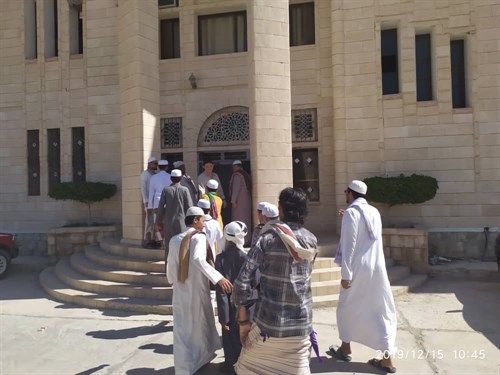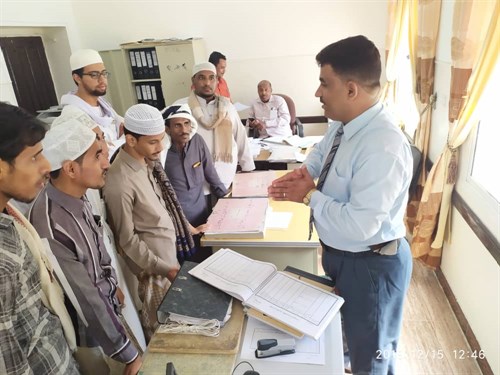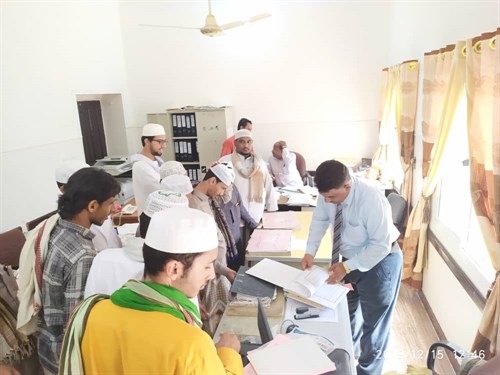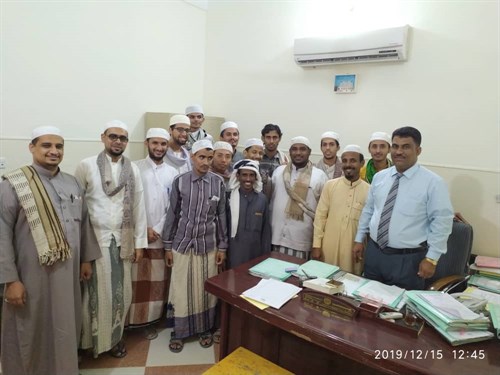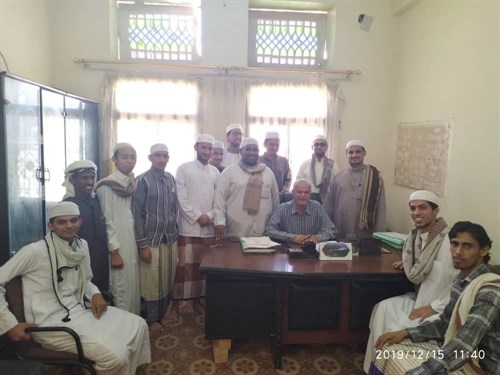A field visit for students of Department of Sharia and Law to the judicial institutions of Seiyun
- 23/12/2019
- Faculty of Sharia & Law
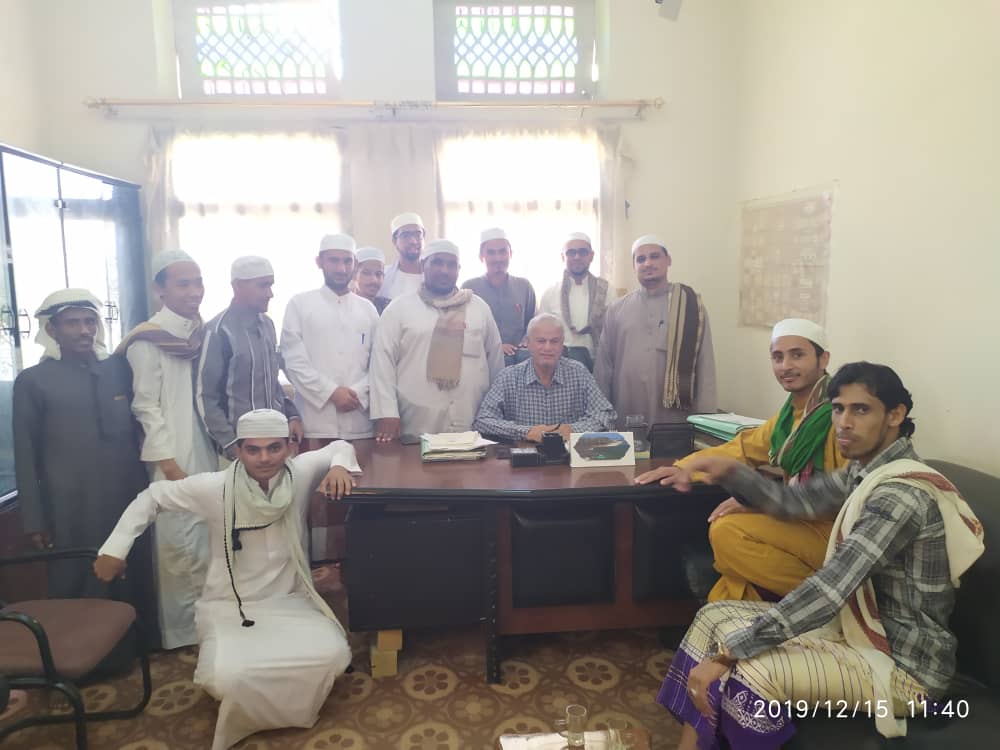
Media Department / follow-ups
Sunday 12/15/2019
In an important and consecutive step to activate the applied side to study legal items, the third level students of the Sharia and Law Department accompanied by their lecturer Hassan Brek Basioud teacher of Criminal Law and lecturer Nizar Sheikh teacher of Civil Law and Dr. Hashem Alwi Moqibel teacher of Public International Law and lecturer Ahmed bin Aqeel teacher of Criminal Law in the Faculty carried out a field visit to some of the judicial institutions in the Wadi and Sahara included the Appeals Court of Seiyun and the public prosecutor's office at Seiyun District.
At the start of their tour, they were received by Judge Abdel Nasser Awad bin Sunkar, chief of the Seiyun Appeals Prosecution Office, who welcomed the teachers and students and thanked them for this visit, to begin explaining the basic principles on which the prosecution is based in its work and its role in the judicial field.
Judge bin Sunkar explained to the teachers and students the relationship between the prosecution and the various institutions in the directorate, and how to cooperate with each other to serve the judiciary and implement justice.
Judge Bin Sunkar also assessed the students for this visit, stressing to them the importance of the applied side, considering that it is the basis on which the student sets off after his graduation to practice in his work and gain the necessary experience that enables him to perform his job successfully.
After that, the teachers and students reviewed with the criminal pen official, Judge Issa Al Habshi, the different types of records that are dealt with in all types of criminal cases carried out by the Public Prosecution.
After that, the students went with their teachers to the Elementary Prosecution Office of Seiyun Directorate, where they were received by Judge Helmy Salem bin Duhri, the Public Prosecutor who welcomed them providing them with a comprehensive overview of the prosecution, its function, the means by which it is handled, and the obstacles hindering its work.
Judge Helmy elaborated in an interesting dialogue with the students and their teachers, exchanging legal information that regulates the affairs of the prosecution and related activities to control crimes and pay attention to arranging them in preparation for their submission to the court, through all the necessary procedures from collecting evidence, investigation and interrogation procedures to other criminal procedures related to the prosecution and its function.
Judge Helmy heard the questions posed by the students and answered them and clarified how to deal with cases received by the prosecution regarding them.
Judge Helmy toured the students in the corridors of the prosecution departments, and introduced them to the most important types of records in which cases are registered, as well as complaints and reports coming to the prosecution.
He also accompanied them to the seizure store and introduced them to some types of forensic evidence that was seized in cases currently pending for the prosecution, indicating to them how to deal with them in all cases.
At the end of the meeting, Judge Helmy bin Duhri thanked the teachers and students for taking the trouble of this visit and invited them to repeat it and expressed his complete readiness to present everything that benefit the students in their educational path, hoping that he will see them again in the corridors of the prosecution, performing their job as they are distinguished from others because of their combination of Sharia and law. The meeting was attended by the member of the Public Prosecution Office, Hashem Taha al-Habshi.
